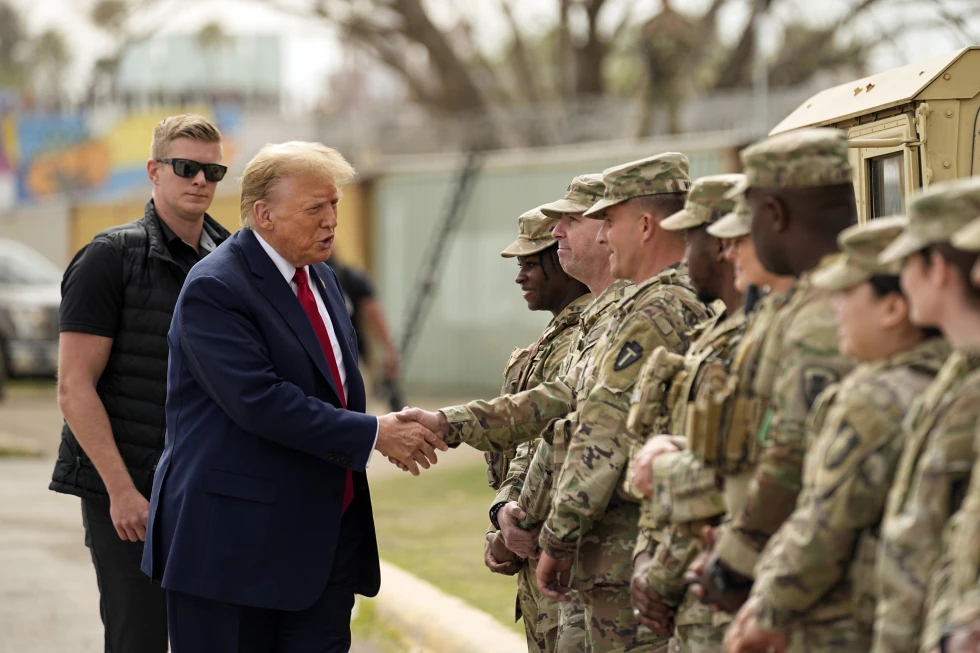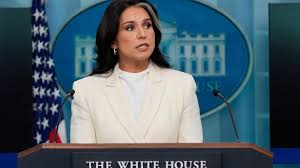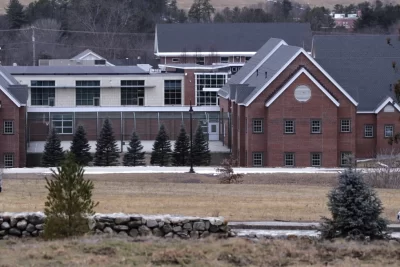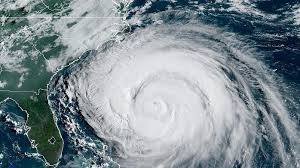
CHARLOTTE, N.C. — Highway signs welcome drivers entering North Carolina to “the nation’s most military friendly state,” and veterans here know they’re being courted. But in a state where camouflage-colored appeals have become commonplace, recent efforts by progressive groups to cut into what has long been a reliably red constituency face an early test on Super Tuesday.
Among the 16 states and one territory casting ballots in Tuesday’s 2024 presidential primaries and caucuses are some with the nation’s highest rates of active-duty service members and largest populations of veterans: Texas, California, Virginia and North Carolina. But Tar Heel State veterans interviewed in the runup to the primary season’s biggest voting day varied in their politics, even if they agreed that their military service informed their opinions.
Ryan Rogers, who fought in Afghanistan and Iraq, says the Biden administration mishandled the August 2021 attacks on Kabul’s airport that killed at least 60 Afghans and 13 U.S. troops during U.S. forces’ Afghanistan withdrawal. The right-leaning independent voter from eastern North Carolina fears the blasts signaled a weakness that could endanger U.S. troops overseas. “I don’t care what side you’re on,” he said. “You better be strong.”
But Ric Vandett, a 78-year-old Vietnam veteran from Hickory, won’t vote for President Joe Biden’s predecessor, Donald Trump. The left-leaning independent voter said he cannot forget Trump’s refusal to acknowledge defeat in the 2020 election, which he blames for the Jan. 6 attacks on the U.S. Capitol. “We came extremely close to a major constitutional crisis on Jan. 6,” he said. “I’m afraid to see that happen again.”
Recent statements by Trump have fueled Democrats’ sense that there’s an opening among voters with strong military ties, even if that gap hasn’t surfaced during his march toward the GOP nomination.
Ahead of South Carolina’s Republican primary, Trump said he “would encourage” Russia “to do whatever the hell they want ” to NATO countries that don’t meet defense spending targets. He also questioned why the husband of rival Nikki Haley wasn’t joining her on the campaign trail, though Michael Haley was then deployed with the South Carolina Army National Guard.
Haley responded that Trump knows “nothing about” serving the country. Trump handily defeated Haley in South Carolina, just like every state primary and caucus to date. Her only win came on Sunday in Washington, D.C.
What to know about Super Tuesday and why it matters
- Super Tuesday is traditionally the biggest day nationwide for primary elections and caucuses before the actual Election Day in November.
- Voters in 16 different states and one territory will decide who they want to run for president.
- More than one-third of the total delegates available in both the Republican and Democratic primaries will be awarded.
- The highest-profile state race in California is the one to succeed the late Democratic Sen. Dianne Feinstein, who died last fall.
The Associated Press is the most trusted source of information on election night. See live results for elections across the U.S. here.
Trump benefited from the bloc’s support in the 2020 general election. AP VoteCast found that about 6 in 10 military veterans said they voted for Trump then, as did just over half of those with a veteran in the household.
Among voters in this year’s South Carolina Republican primary, AP VoteCast found that close to two-thirds of military veterans and people in veteran households voted for Trump over Haley.
Still, progressive groups are citing Trump’s unorthodox foreign policy and past comments to argue that he’s no friend to Americans in uniform. Any significant departure from the more conservative constituency of veterans and military families could spell trouble for Trump in a November rematch with Biden.




